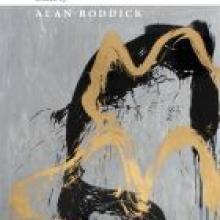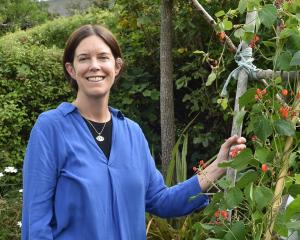
The media release from the Otago University Press concerning this handsome edition opens with a statement of its necessity, noting that although Brasch ''was a leading poet of his generation and a pre-eminent figure in the development of the arts in New Zealand, yet his poetry has been out of print for over 30 years''.
This ''first-ever selected edition of Brasch's poetry'' is intended to rectify that situation.
Some readers of New Zealand poetry think that no such rectification is necessary, and that the 1984 Oxford University Press edition of the Collected Poems, still available on library shelves for the historical record, is enough.
Nicholas Reid last month in his blog, after a thoughtful examination of the poems, concluded 'As politely as I can, I am saying that they are dated, many of them in a way that places them beyond revival''.
Although he admits that ''comparisons are odious'', at the same time as he was reading the poems of Brasch, the founding editor of Landfall, he was also reading The Conch Trumpet, the latest volume of poems from the current editor, David Eggleton, and found himself delighted to be in ''a most un-Brasch-in world''.
In contrast, Gregory O'Brien, in an interview late last month, found the book necessary, ''an essential Charles Brasch'', evidence that Brasch's work was ''relevant and alive'', and he went on to read aloud Brasch's Great Sea and a poem of his own from his new book, Whale Years, which he explained was a response to Brasch's poem.
In her autobiography in 1983, Janet Frame wrote of how Great Sea, which she had read in 1945 in Allen Curnow's anthology of that year, A Book of New Zealand Verse, spoke for her.
Brasch's poem, then, was alive and relevant for two New Zealand writers separated by 70 years.
In this edition the editor, Alan Roddick, appends to the poem a brief note referring to a passage in Brasch's memoir, Indirections, which fills out what is suggested by the date (August 1939) and place (Kona Coast, Hawaii) that Brasch had attached to it.
The poem, which seems a universal invocation to nature, originated in a very personal situation in which Brasch, in Hawaii with his father, felt himself ''numb and leaden and without hope'' as he faced the personal implications of the imminent war and found himself unable to speak of them.
As Curnow had noted in his introduction to his anthology, Brasch in these early poems was engaged in the ''self-absorption of imagination, looking for symbolism in its own problems'', ''a natural occasion for verse'' when the poet finds ''a meaningful analogue'' for his personal feelings in a natural symbol which may also become emotionally suggestive for the reader.
Curnow chose 11 of these early poems for his 1945 anthology, six from Brasch's first book, The Land and the People, four from mostly English periodicals that Brasch in 1948 was to collect in his second book, Disputed Ground, and one (The Silent Land) that Brasch never collected in his lifetime (and that Roddick did not select for this edition).
As Roddick reports in his introduction, Brasch wrote in his journal on August 31, 1945 that although he now disliked some of the poems Curnow had chosen, ''the fact of being well represented'' gave him ''a great sense of support, of being established, having arrived'', so that he might call himself ''a writer without blushing'' and could ''face the family as an independent being''.
These were the poems that first placed Brasch among the leading poets of his generation, and Roddick includes seven of them in this edition along with five related poems.
Much more fully represented in Roddick's selection, however, is Brasch's third book, The Estate (1957).
As well as 11 stand-alone poems, Roddick has selected 14 of the 34 sections of the title sequence.
That sequence marks the culmination of Brasch's ''land and people theme'', on which Curnow had focused, but it also shows Brasch moving towards more personal poetry.
The sequence is dedicated to Harry Scott and is an expression of Brasch's love for him as well as his gratitude for such creative friends as Colin McCahon and Douglas Lilburn, who were ''the lanterns we look to, certain stars in a cloudy twilight'' witnessing to the possibility of making a genuine New Zealand high culture.
The Wordsworthian ''spot of time'' in the final section in the South Island mountains is not an impersonal ideal, as in The Silent Land of 1940, but a personal experience shared with Scott of ''this strength, this ripeness of heart by all earthly powers / Confirmed''.
Poems from Brasch's last three collections - Ambulando (1964), Not Far Off (1969) and the posthumously published Home Ground (1974) - make up the last half of Roddick's selection and show Brasch moving further in the direction of personal poetry.
They are not intensely personal such as the poems of James K. Baxter in these years (he died, even more prematurely, the year before Brasch), with their self-dramatisation and self-mythologising, but rather they express the man who in a journal entry of 1961 described ''the thread that unites my various selves'' as ''the observing, remembering, recording self''.
That self, central in the journals, was able to observe and record himself, as in the last stanza of Cry Mercy, the final poem in Ambulando:
''Liking and disliking,
Unloving and wanting love,
Nearer to and farther from
My cross-grained fellow mortals,
On my level days I cry mercy
And on my lofty days give thanks
For the bewildering rough party.''
Described by his good friend James Bertram as being, ''like many artists'', possibly ''bisexual in his feelings'', Brasch had an air of reserve, about him, perhaps partly the result of living in English and New Zealand societies which for all his life had laws against acting on such feelings.
In Open the Heart, addressed to himself as ''you'', he said ''... you dare not stand, because / To speak out is more desperate than to keep silence. / To open the heart is to bleed to death surely''.
However, in the very next poem in Not Far Off, Signals, he could observe and record his late-discovered heterosexual feelings, telling his lover that she was not what she had been before they ''knew each other'', but that he could not ''explain the difference'', although his ''antennae report it''.
He continues ''Nor can I put my finger on the difference in myself / Now we have learned to answer signals / We did not receive once''.
The Selected Poems offers the reader in an expertly and sympathetically edited, beautifully designed and printed book of 150 pages the opportunity to experience Brasch's poetic journey from his early impersonal presentation of the still undeveloped relation of New Zealanders to their land through his expression of own sense of belonging to and contributing to his New Zealand ''estate'' to his final sense that winter anemones growing from that land will ''lamp me through inscrutable dusk / And down the catacombs of death''.
Such poems, although written in currently unfashionable modes, when they are read in their own terms remain alive and relevant as the testament to the poetic development of a reserved man of great integrity and insight, one of the makers of a New Zealand high culture.
• Lawrence Jones is an emeritus professor of English.











